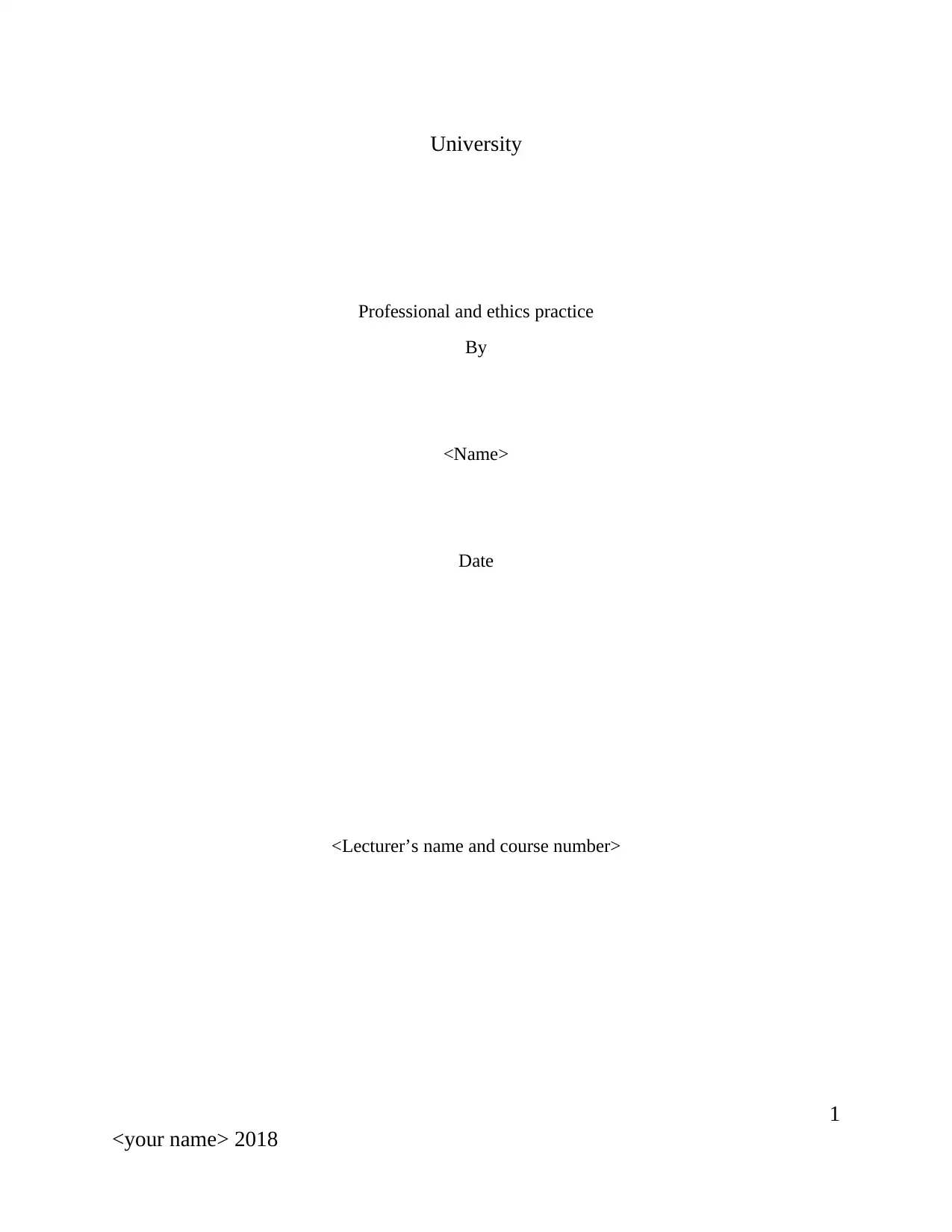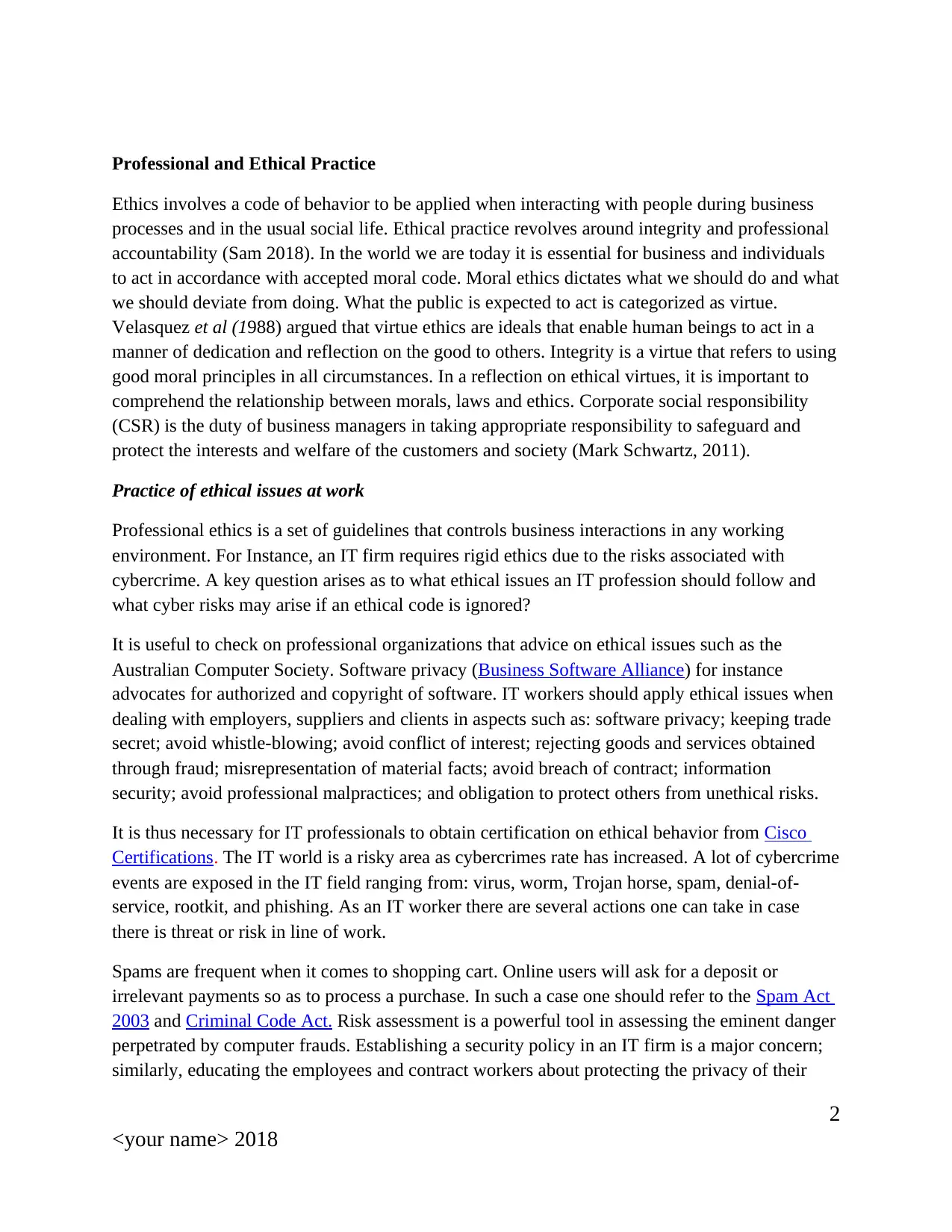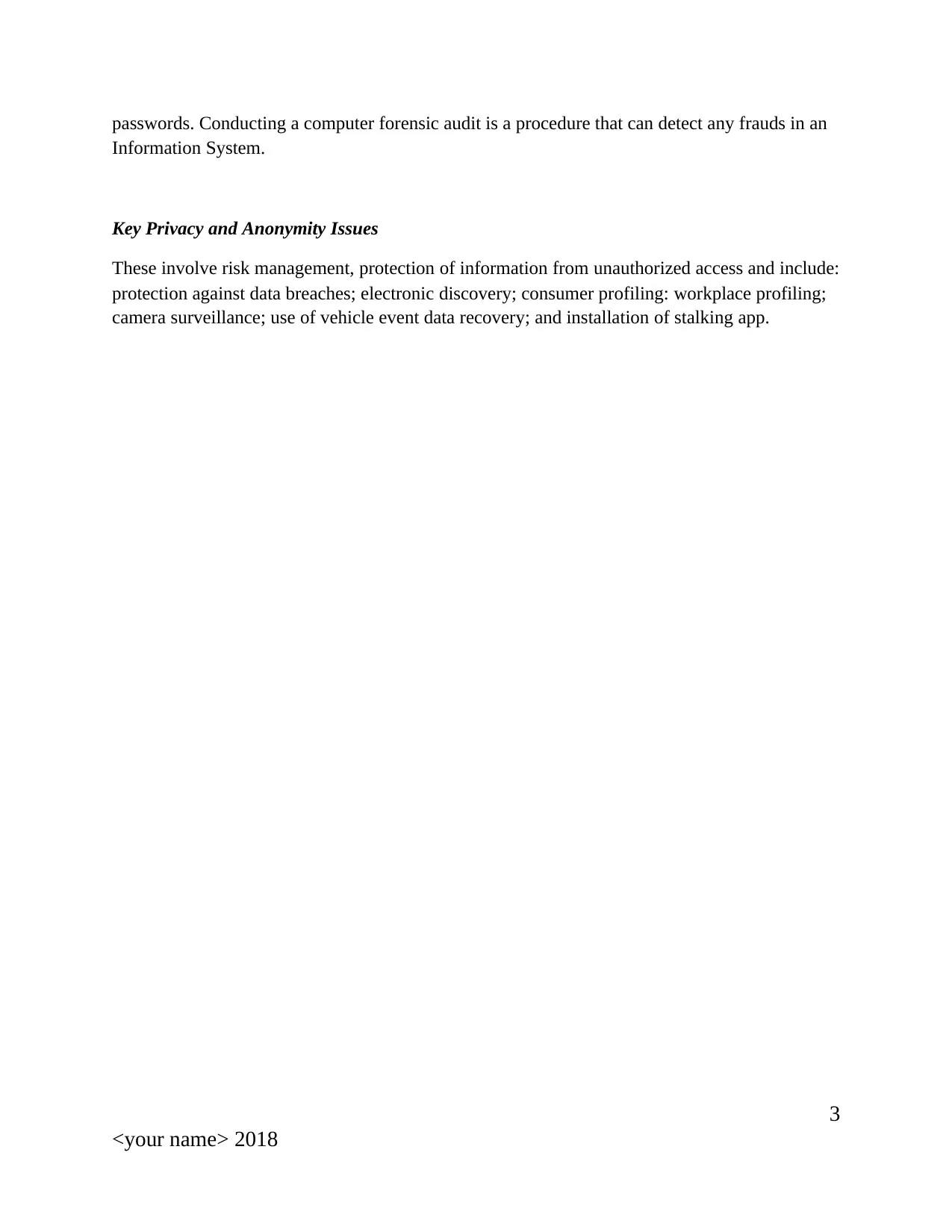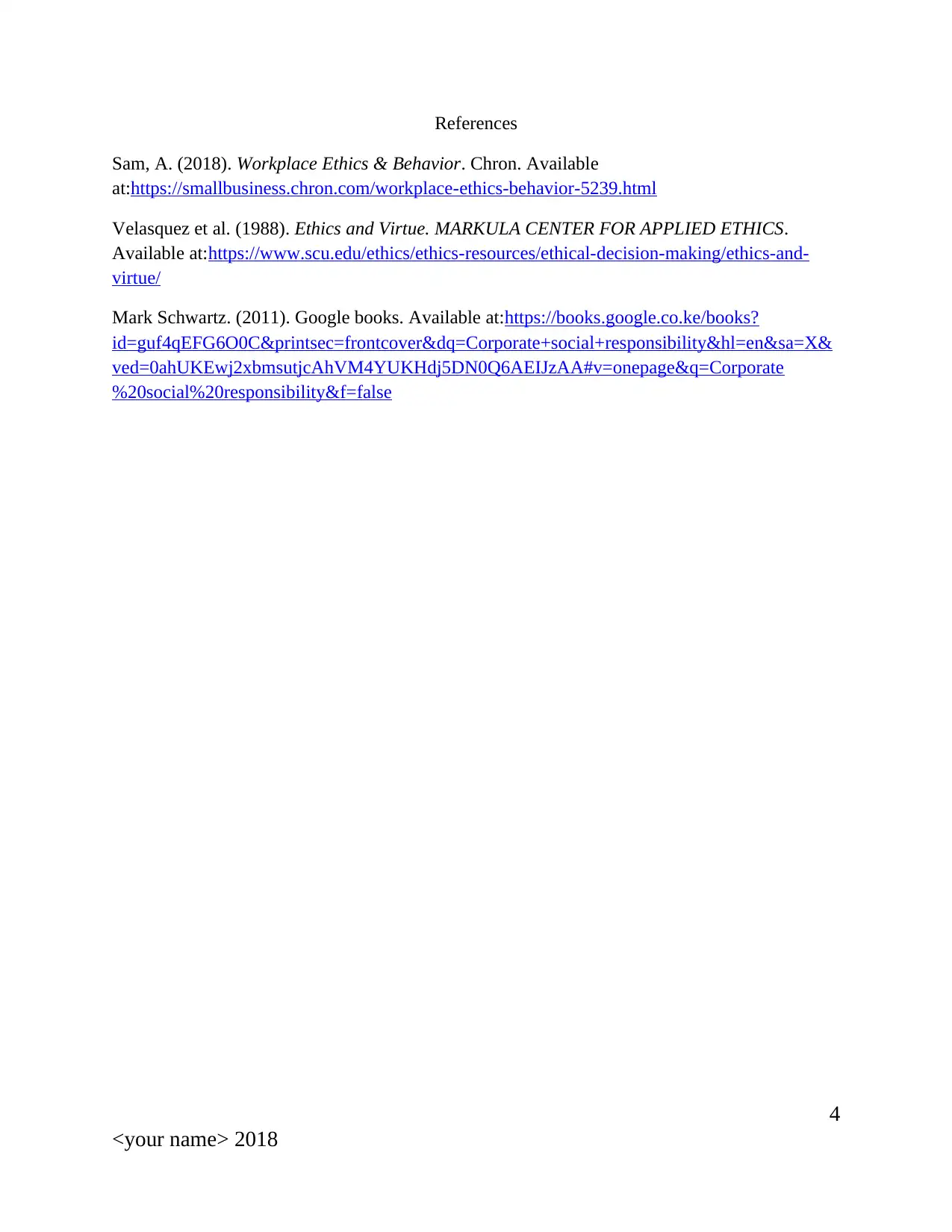Professional and Ethical Practice in IT: Risks and Solutions Report
VerifiedAdded on 2023/06/10
|4
|729
|223
Report
AI Summary
This report delves into professional and ethical practices, particularly within the IT sector. It emphasizes the importance of ethical codes, integrity, and corporate social responsibility. The report highlights key ethical issues for IT professionals, such as software privacy, data security, and the avoidance of conflicts of interest. It also addresses the increasing cybercrime threats, including viruses, spam, and phishing, and suggests risk assessment as a crucial tool. Furthermore, the report discusses privacy and anonymity issues, including data breaches, consumer profiling, and surveillance, along with relevant legal frameworks like the Spam Act 2003. The report emphasizes the need for IT professionals to obtain certifications in ethical behavior and implement security policies to protect data and employee privacy. The report also references key sources to support its arguments.
1 out of 4









![[object Object]](/_next/static/media/star-bottom.7253800d.svg)